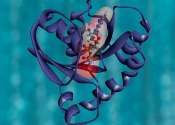Brain-like organoids grown in a dish provide window into autism
Whatever you do, don't call them "mini-brains," say University of Utah Health scientists. Regardless, the seed-sized organoids—which are grown in the lab from human cells—provide insights into the brain and uncover differences ...
Oct 6, 2022
0
77









